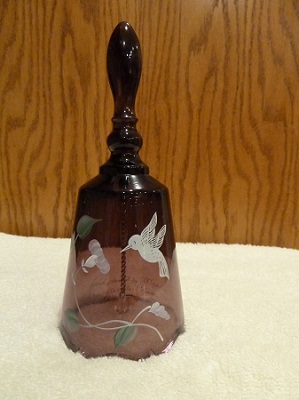Running on Fumes
 Please welcome my friend Andrea Giordano as today’s guest writer. I met Andrea when she was Executive Director of TESOL and ESL Programs at Campbellsville University. Andrea is the founder of StudyWithAndrea.com and has taught more than 1,000,000 students from 180 countries. She is a proven leader in online English teaching and is driven by her passion to help you speak English clearly. You can study with Andrea at the following places:
Please welcome my friend Andrea Giordano as today’s guest writer. I met Andrea when she was Executive Director of TESOL and ESL Programs at Campbellsville University. Andrea is the founder of StudyWithAndrea.com and has taught more than 1,000,000 students from 180 countries. She is a proven leader in online English teaching and is driven by her passion to help you speak English clearly. You can study with Andrea at the following places:
– English with Andrea podcast
– Clear English Pronunciation course
– The Study With Andrea YouTube channel
I was driving a friend’s truck last summer when, all of a sudden, the gas light came on. I was miles from a gas station and didn’t know if I would make it to a gas station in time. For the next few miles, I was dangerously close to running out of gas. I was running on fumes.
Just like that truck, I’ve had times in my life when I was running on fumes. These were times I had given all my energy away. I found myself with little ability to handle life easily because of how tired I was.
 Running on fumes means you are tired or have little emotional energy.
Running on fumes means you are tired or have little emotional energy.
- Tired
- Emotionally tired
- Exhausted
There are many situations where you can be running on fumes. You might be a student who stayed up all night finishing a research paper, but still have to show up for an early morning class.
You might be a mom with a newborn baby, where you never get more than three hours of sleep at a time.
You might be locked down to protect yourself from COVID-19. Even though you are safer at home, you feel lonely and overwhelmed by financial pressures and the constant bad news on TV.
In all of those scenarios, you would be running on fumes.
When I feel like I’m running on fumes, I do a few things to refuel:
- Get some time alone to pray about what is really exhausting me. A lot of times, just identifying an underlying stress or issue helps me feel like I can do something about it.
- I try to go to bed earlier and drink more water.
- I listen to worship music and remember that God is strong enough to help me through whatever I’m facing.
- I read Scripture, especially verses like Matthew 11:28 (NIV), “Come to me, all you who are weary and burdened [running on fumes], and I will give you rest.”
What helps you when you are running on fumes? Please comment below.
Subscribe to receive my weekly posts by email and receive a free copy of “Words of Hope for Days that Hurt.”
If you enjoyed this post, please share it with your friends.
Photo courtesy of Pixabay.
 “Are you ready?”
“Are you ready?” “When you reach the end of your rope, tie a knot in it and hang on.” –Franklin D. Roosevelt.
“When you reach the end of your rope, tie a knot in it and hang on.” –Franklin D. Roosevelt. On a trip to Minneapolis years ago, I caught a plane just in the nick of time. My first plane had engine trouble, so I had to change flights. That made me late for my second flight. As a result, I had to run through the airport about 1:00 a.m. to board my plane on time.
On a trip to Minneapolis years ago, I caught a plane just in the nick of time. My first plane had engine trouble, so I had to change flights. That made me late for my second flight. As a result, I had to run through the airport about 1:00 a.m. to board my plane on time. Frogs give me the heebie-jeebies. Big ugly frogs. Cute little frogs. All frogs. They jump too fast. Plus, a friend once had a frog get tangled in her hair.
Frogs give me the heebie-jeebies. Big ugly frogs. Cute little frogs. All frogs. They jump too fast. Plus, a friend once had a frog get tangled in her hair. Saved by the bell means we escape a difficult situation at the last moment.
Saved by the bell means we escape a difficult situation at the last moment.  Our greatest salvation comes through Jesus’ death on a cross.
Our greatest salvation comes through Jesus’ death on a cross. “Don’t worry about it. It will come out in the wash.” Those words have probably helped many of us deal with problems or disappointments.
“Don’t worry about it. It will come out in the wash.” Those words have probably helped many of us deal with problems or disappointments. “If that is what you think, you have another think coming!” Sadie’s poor sheep are in trouble.
“If that is what you think, you have another think coming!” Sadie’s poor sheep are in trouble. Most of us have probably had sour grapes moments. We want something but cannot get it.
Most of us have probably had sour grapes moments. We want something but cannot get it. A friend’s father often said, “The one who dances has to pay the fiddler.” That makes sense. We live with the consequences of the choices we make.
A friend’s father often said, “The one who dances has to pay the fiddler.” That makes sense. We live with the consequences of the choices we make.